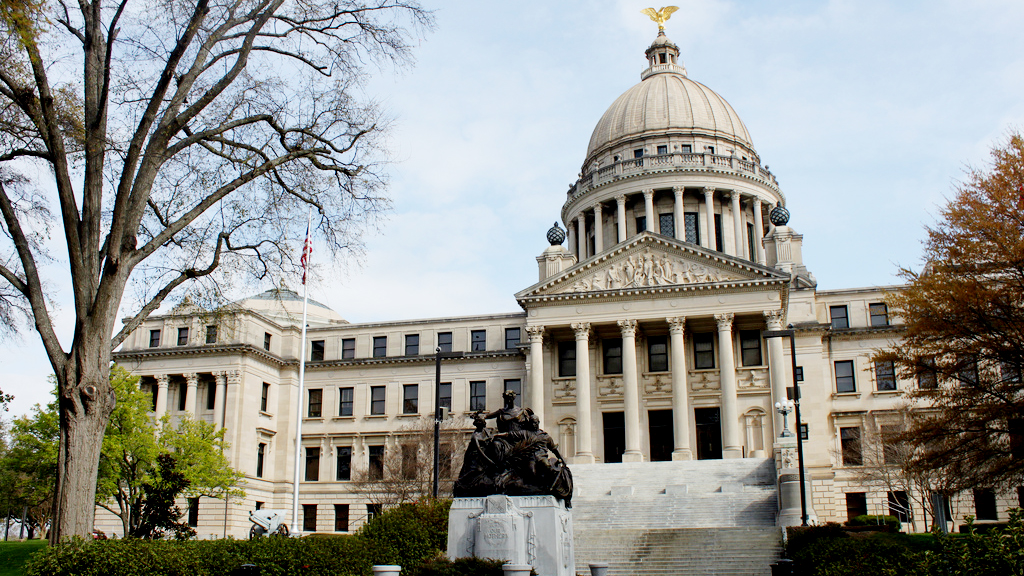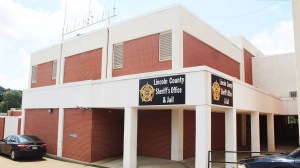MS House passes ballot initiative proposal that would prevent voters from using it to change abortion ban
Published 9:57 am Thursday, January 25, 2024

- Mississippi State Capitol
Mississippians would be prevented from placing an initiative on the ballot to change the state’s strict anti-abortion laws under a proposal passed Wednesday by the House of Representatives.
House Concurrent Resolution 11, which is still several legislative steps from becoming law, would give citizens the ability to gather signatures to propose new state laws or change existing laws, but it bans them from placing an issue on a statewide ballot about abortion.
The proposal barely passed the House. The measure required two-thirds of the chamber to support it, and 119 members participated in the vote, meaning 80 yea votes were required for it to pass.
Trending
“That unborn child, that’s who we’re trying to protect,” said House Constitution Chairman Price Wallace, a Republican from Mendenhall.
Rep. Cheikh Taylor, a Democrat from Starkville and the Mississippi Democratic Party chairman, said limiting the scope of what types of initiatives can be proposed was undemocratic and muting the voice of voters.
“Don’t let anyone tell you this is just about abortion,” Taylor said. “This is about a Republican Party who thinks they know what’s best for you better than you know what’s best for you. This is about control.”
Taylor and House Minority Leader Robert Johnson III, a Democrat from Natchez, attempted to amend the legislation to remove the abortion prohibition, but their efforts were defeated by Republicans who have a supermajority in the chamber.
The House’s proposal now heads to the Senate for consideration, where its fate remains uncertain. Republican Lt. Gov. Delbert Hosemann, the leader of the Senate, said on Jan. 9 at a Stennis Institute and Capitol Press Corps event that he believes there should be few restrictions on what topics citizens can propose.
The Senate killed a similar House bill last year.
Trending
“To me, it seems like if we’re going to do a ballot initiative that had enough people sign onto it and they really thought the Legislature was not doing their job, then you ought to have a pretty clean ballot initiative,” Hosemann said. “If we’re doing one and you can’t do a ballot on any of these things, then why are you doing it at all?”
After the U.S. Supreme Court overturned Roe v. Wade and eliminated a person’s constitutional right to an abortion, Mississippi’s so-called “trigger law” went into effect that banned abortion in most instances.
But after the nation’s highest court ruled in 2022 that state governments have the authority to set abortion laws, voters in several conservative-run states elected to protect abortion access.
“In recent elections that have happened since Roe v. Wade was overturned, they decided to elect their conservative leaders that they have, but they also want to preserve or increase a woman’s right to choose,” Rep. Lawrence Blackmon, a Democrat from Jackson, said during the debate.
Republican legislative leaders have maintained Mississippi is an ardent anti-abortion state. But in 2011, Mississippi voters overwhelmingly rejected a so-called personhood amendment that would have defined life as beginning at conception.
Speaker Jason White, a Republican from West, told reporters after the measure passed that he had “no reaction” to the fact that Mississippians previously voted down a personhood initiative because he believes the personhood initiative was “totally different” from House’s effort to ban abortion proposals under the new initiative process.
“We’re reinstating the initiative process,” White said. “That was in a Roe v. Wade world when that initiative was brought forward. This is a totally different world we’re in post-Roe. I would just say that everything has totally changed after the U.S. Supreme Court’s decision two years ago.”
Mississippians have not had an initiative process since 2021, when the Mississippi Supreme Court ruled it invalid because of a technicality over the state’s congressional districts.
Besides fixing the concerns that led to the Supreme Court tossing the process out, the House’s recent proposal changes the old initiative process by allowing voters to bypass the Legislature and only change general law instead of changing the state constitution.
The proposal requires organizers to gather signatures from 8% of the number of registered voters during the last governor’s race, which the Secretary of State’s office estimates to be around 166,000.
Several House members opposed other portions of the proposal, such as giving the Legislature the authority to offer alternative amendments to appear alongside a citizen-sponsored initiative.
“Deep down in your heart, do you really think we’re doing the people justice because once that initiative is done, all that hard work is done and we bring this back to you guys, and you guys can say, ‘No all our hard work was done in vain?’” Rep. Hester Jackson-McCray, a Democrat from Horn Lake, asked.
Rep. Fred Shanks, a Republican from Brandon who led the debate in support of the proposal, told the members that his primary concern was to pass an initiative proposal that the House could use to negotiate with the Senate.
“We are just trying to get a vehicle to the Senate,” Shanks said.
The Senate has not voted on an initiative restoration measure that originated in its chamber, and it has until April 2 to pass the House proposal out of a Senate committee.
By Taylor Vance, Mississippi Today





